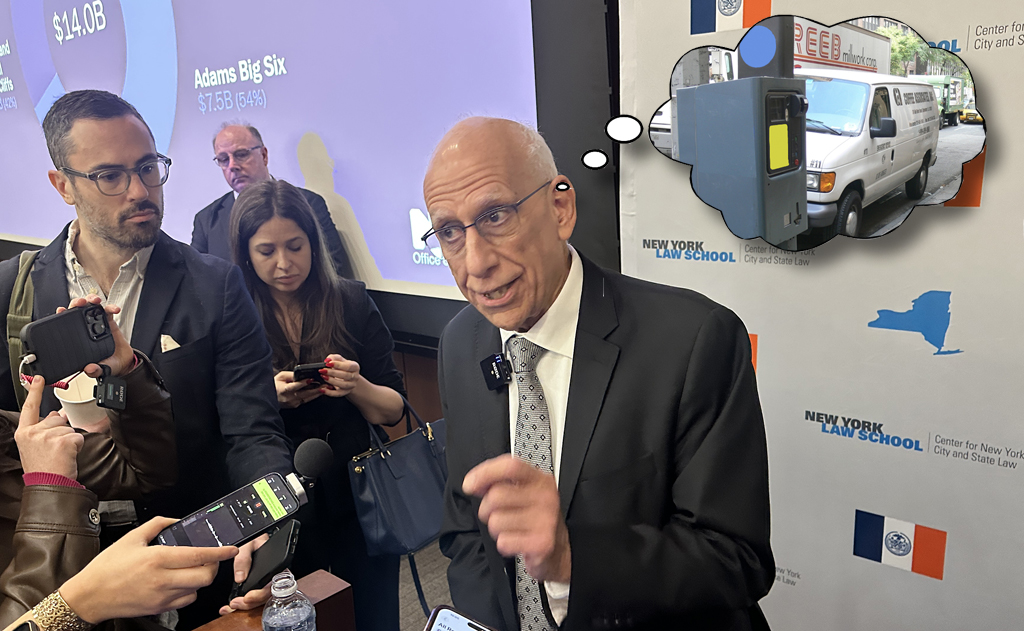 How cynical is this? Brooklyn Assemblyman Hakeem Jeffries is calling on the MTA to increase service on the G train. His office just sent out an invitation to a "Save the G Train" rally on Wednesday, May 21 at 6:30 pm at the Lafayette Avenue Presbyterian Church in Fort Greene.
How cynical is this? Brooklyn Assemblyman Hakeem Jeffries is calling on the MTA to increase service on the G train. His office just sent out an invitation to a "Save the G Train" rally on Wednesday, May 21 at 6:30 pm at the Lafayette Avenue Presbyterian Church in Fort Greene.
Hakeem Jeffries was, of course, in the perfect position to negotiate G train service enhancements during the congestion pricing debate a couple of months back. Instead, the Assemblyman who oversees Flatbush Avenue, the traffic-choked on-ramp to the free Manhattan Bridge, aligned himself with legislators from Westchester, south Brooklyn and eastern Queens against congestion pricing:
Speaking on behalf of a district where 70 percent of households do not own a car, where only 2.2 percent of daily commuters drive alone to work in the pricing zone, where the households that do own a vehicle earn nearly twice as much as the ones that don't, Jeffries said that he opposes congestion pricing because, among other reasons, "it's unfair to working families."
Thanks, in part, to Jeffries and his State Assembly colleagues' refusal to hold a debate or take a vote on New York City's congestion pricing plan, the MTA is staring at a $17.5 billion deficit in its $29 billion capital plan and service increases are about as unlikely as ever. "Save the G" advocates need to hold Jeffries accountable.
Here, by the way, are some of the other improvements that working families (and everyone else) in Jeffries' district lost when he and his colleagues shot down congestion pricing:
- Flatbush Avenue's B41 was number one on the list of bus routes that would have seen increased service using the $354.5 million federal grant.
- Brooklyn's first-ever Bus Rapid Transit route, one of five routes citywide, was (and still is) slated to run through Jeffries' district, along Bedford and Nostrand Avenues. That project would have been paid for by congestion pricing money too.
- The Department of Transportation was looking at parts of Jeffries' district for a possible residential parking permit program to help protect neighborhoods from park-and-ride commuters.





